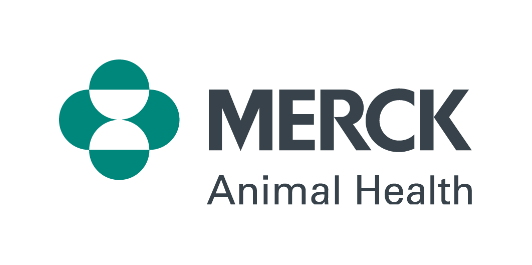Merck Animal Health Launches Global Awareness Campaign to Support Pet Diabetes Month™ “A Healthy Pet = A Happy Family” Encourages Screening and Treatment
Summit, New Jersey, November 1, 2013 – Merck Animal Health (known as MSD Animal Health outside the United States and Canada) has launched a global awareness campaign to support Pet Diabetes Month™ this November. The “Healthy Pet = A Happy Family” campaign highlights that just like humans, dogs and cats can also suffer from diabetes. The campaign is designed to raise awareness of the signs of the condition among pet owners in an effort to encourage them to visit their veterinarians to have their pets screened and/or treated.
“The signs of pet diabetes are easy to recognize if owners know what to look for,” said Thierry Martine, Director, Merck Animal Health “Considering the fact that pet diabetes can be effectively managed, lack of owner awareness may be the biggest risk factor associated with this condition.”
Excessive thirst, frequent urination and change in appetite are some of the most common signs of diabetes mellitus in dogs and cats. Pets may also exhibit increased hunger while losing weight, cloudy eyes (due to cataracts) in dogs and weakness of the back legs in cats. Risk factors that may contribute to the development of diabetes mellitus include age (middle-aged to older dogs and cats are more susceptible), genetics, breed and obesity.
Pets enjoy life as members of the family, and Merck Animal Health has brought the science of human health to diabetic pets with VetPen®. For years, insulin pens have made managing diabetes more convenient for human diabetics. Now, VetPen®, the first insulin pen for use in diabetic dogs and cats, allows pet owners to care for their diabetic pets the way they would care for themselves. VetPen® is more convenient to use than insulin syringes and makes it easier for pet owners to give injections discreetly anywhere. It also provides precision dosing.
The prevalence of diabetes mellitus in dogs and cats ranges from at least one in 1001 to one in 5002. The number of dogs diagnosed with the condition has tripled during the past 30 years. Today, dogs receiving the proper treatment have the same expected lifespan as a non-diabetic dog of the same age and sex. With treatment, a regular diet and routine, a diabetic cat can also have a happy, healthy life. If a dog or cat displays signs or is at risk, pet owners should talk to their veterinarian, as getting the condition under control early is paramount to survival. Lack of diagnosis and treatment can lead to severe and life-threatening health issues. When a pet’s diabetes is well-regulated, diabetic pets can continue to live happy, healthy lives with the families who love them. Today, along with proper diet and exercise, Caninsulin®, the only veterinary insulin product approved for use in both dogs and cats, and VetPen® play an important role in successfully managing the condition. For more information about pet diabetes, please visit www.petdiabetesmonth.com.
About Merck Animal Health
Today’s Merck is a global healthcare leader working to help the world be well. Merck Animal Health, known as MSD Animal Health outside the United States and Canada, is the global animal health business unit of Merck. Merck Animal Health offers veterinarians, farmers, pet owners and governments one of the widest range of veterinary pharmaceuticals, vaccines and health management solutions and services. Merck Animal Health is dedicated to preserving and improving the health, well-being and performance of animals. It invests extensively in dynamic and comprehensive R&D resources and a modern, global supply chain. Merck Animal Health is present in more than 50 countries, while its products are available in some 150 markets. For more information, visit www.merck-animal-health.com.
Merck forward-Looking Statement
This news release includes “forward-looking statements” within the meaning of the safe harbor provisions of the United States Private Securities Litigation Reform Act of 1995. These statements are based upon the current beliefs and expectations of Merck’s management and are subject to significant risks and uncertainties. If underlying assumptions prove inaccurate or risks or uncertainties materialize, actual results may differ materially from those set forth in the forward-looking statements.
Risks and uncertainties include but are not limited to, general industry conditions and competition; general economic factors, including interest rate and currency exchange rate fluctuations; the impact of pharmaceutical industry regulation and health care legislation in the United States and internationally; global trends toward health care cost containment; technological advances, new products and patents attained by competitors; challenges inherent in new product development, including obtaining regulatory approval; Merck’s ability to accurately predict future market conditions; manufacturing difficulties or delays; financial instability of international economies and sovereign risk; dependence on the effectiveness of Merck’s patents and other protections for innovative products; and the exposure to litigation, including patent litigation, and/or regulatory actions.
Merck undertakes no obligation to publicly update any forward-looking statement, whether as a result of new information, future events or otherwise. Additional factors that could cause results to differ materially from those described in the forward-looking statements can be found in Merck’s 2012 Annual Report on Form 10-K and the company’s other filings with the Securities and Exchange Commission (SEC) available at the SEC’s Internet site (www.sec.gov).
